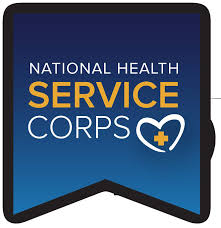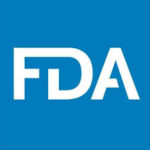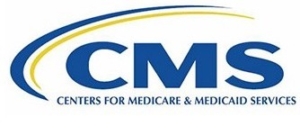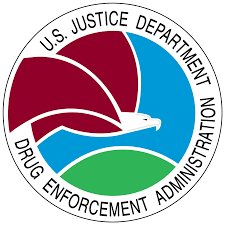COVID-19 Update: April 17, 2020
The following is the latest COVID-19 information from the state and federal governments as of 4:30 p.m. on Friday, April 17.
Pennsylvania Update
Daily COVID-19 Briefing
 During today’s COVID-19 briefing, Governor Wolf addressed the subject of “reopening” Pennsylvania following the limits he has placed on the state’s residents and its businesses, community life, and social interactions in response to the COVID-19 crisis. He emphasized the need to continue social distancing, said his administration has been working for weeks to develop plans for reopening the state, and explained that any such effort would be data-driven and local and regional, as opposed to state-wide. He mentioned the importance of doing more to support the health care system and said that any reopening must ensure the state’s continued ability to respond to COVID-19 challenges if they re-emerge. What he described today, he said, was a framework for future action, and he said he would provide more details next week.
During today’s COVID-19 briefing, Governor Wolf addressed the subject of “reopening” Pennsylvania following the limits he has placed on the state’s residents and its businesses, community life, and social interactions in response to the COVID-19 crisis. He emphasized the need to continue social distancing, said his administration has been working for weeks to develop plans for reopening the state, and explained that any such effort would be data-driven and local and regional, as opposed to state-wide. He mentioned the importance of doing more to support the health care system and said that any reopening must ensure the state’s continued ability to respond to COVID-19 challenges if they re-emerge. What he described today, he said, was a framework for future action, and he said he would provide more details next week.
In the meantime, his office released three documents in support of his plans: one on relief, reopening, and recovery; one on businesses; and one on health care.
From the Department of Health’s daily update news release on the COVID-19 crisis:
- After several days of more modest numbers, new COVID-19 cases rose considerably yesterday and deaths remain high.
- More than half of all COVID-19 deaths in Pennsylvania to date have been among residents of 321 different long-term-care facilities.
Department of Health
The department has updated its March 24 interim infection prevention and control recommendations for patients in health care settings who have COVID-19 or are under investigation for COVID-19. The new guidance explains that “As community transmission intensifies within a region, healthcare facilities may consider foregoing contact tracing for exposures in a healthcare setting in favor of universal source control for HCP and screening for fever and symptoms before every shift, as well as the end of every work shift…”
The Department of Health sent a letter to hospitals reminding them that the CARES Act requires each provider of a diagnostic test for COVID-19 to publicize the cash price of the test on a public internet website of the provider.
Department of Human Services
 DHS has updated its March 20 guidance to reflect that it will not be conducting any annual licensing inspections for entities licensed by its Office of Developmental Programs, Office of Child Development and Early Learning, Office of Long-Term Living/Bureau of Human Services Licensing, and Office of Children, Youth and Families until Governor Wolf lifts his current disaster emergency proclamation or until such other time determined by DHS.
DHS has updated its March 20 guidance to reflect that it will not be conducting any annual licensing inspections for entities licensed by its Office of Developmental Programs, Office of Child Development and Early Learning, Office of Long-Term Living/Bureau of Human Services Licensing, and Office of Children, Youth and Families until Governor Wolf lifts his current disaster emergency proclamation or until such other time determined by DHS.
DHS has issued a memorandum to HealthChoices physical health managed care organizations about telemedicine guidelines related to COVID-19. This memo clarifies issues related to HIPAA compliance in the use of communication technology and the use of out-of-state practitioners and supersedes a similar memo DHS sent to the HealthChoices plans last month.
Department of State
The Department of State has waived certain administrative requirements for graduate medical trainees during the COVID-19 emergency. Until this waiver was implemented, medical residents with graduate medical trainee licenses who wished to work elsewhere, in addition to where they were serving as residents, needed to provide to the state a detailed written statement of the medical services they would be providing beyond the parameters of the graduate medical trainee program and receive a board evaluation of their training and education. This required statement has now been temporarily waived.
Pennsylvania Congressional Delegation
Ten Democratic members of Pennsylvania’s congressional delegation have written to Health and Human Services Secretary Alex Azar and Centers for Medicare & Medicaid Services Administrator Seema Verma to complain that the manner in which they have allocated the first $30 billion of the $100 billion designated for hospital and health care providers in the federal CARES Act “…disadvantages Pennsylvania and many of our key providers in several ways.” Go here for a link to the letter.
Federal Update
The White House
- President Trump has unveiled “Guidelines for Opening Up America Again,” a three-phase approach to reopening the economy. Find that plan here.
- President Trump has signed a memorandum authorizing the use of the National Guard by governors in five more states to help with their response to the COVID-19 emergency, with the cost of National Guard assistance to be assumed 100 percent by the federal government. The five states are Iowa, Kansas, Maine, Nebraska, Oklahoma, and Vermont.
Centers for Medicare & Medicaid Services
 In the latest edition of its online publication MLN Matters, CMS outlines new and expanded flexibilities for rural health clinics and federally qualified health centers during the COVID-19 emergency.
In the latest edition of its online publication MLN Matters, CMS outlines new and expanded flexibilities for rural health clinics and federally qualified health centers during the COVID-19 emergency.
Food and Drug Administration
- The FDA has issued an emergency use authorization (EUA) for the use of a new commercial test to diagnose prior infection by the virus that causes COVID-19.
- The FDA issued guidance to help expand the availability of telethermographic systems used for body temperature measurements for triage use for the duration of the COVID-19 emergency.
- The FDA added content to the question-and-answer appendix in its guidance document “Conduct of Clinical Trials of Medical Products during COVID-19 Public Health Emergency.”
Centers for Disease Control and Prevention
- The CDC has updated its COVID-19 guidance to pharmacists and pharmacies.
National Institutes of Health
- The NIH has announced the launch of a public-private partnership to speed the development of COVID-19 vaccine and treatment options.
 National Health Services Corps
National Health Services Corps
- The National Health Service Corps and Nurse Corps has updated its FAQ for National Health Service Corps and Nurse Corps participants and approved sites.
Resources to Consult
Pennsylvania Department of Human Services
Pennsylvania Department of Health
Centers for Disease Control and Prevention
(To receive this daily update directly, sign up for our mailing list at info@pasafetynet.org.)
 Daily COVID-19 Briefing
Daily COVID-19 Briefing Department of Health and Human Services
Department of Health and Human Services The FDA has published guidance for a
The FDA has published guidance for a  Governor Wolf
Governor Wolf Secretary Levine has issued
Secretary Levine has issued  Yesterday President Trump announced the creation of the
Yesterday President Trump announced the creation of the  The CDC has updated its interim
The CDC has updated its interim  Department of State
Department of State CMS has posted a
CMS has posted a  The DEA has published a letter that grants to the satellite hospitals and clinics of DEA-registered hospitals, under certain conditions, the
The DEA has published a letter that grants to the satellite hospitals and clinics of DEA-registered hospitals, under certain conditions, the  Over the weekend, House Speaker Michael Turzai changed the House of Representatives’ session schedule to hold a non-voting session day today and a voting session day tomorrow in an effort to enable Republicans to move forward with relief efforts for businesses related to the COVID-19 crisis. There has been speculation that if a quorum is present the Speaker may seek to suspend temporary House rules permitting remote voting to ease the passage of Republican-sponsored relief measures for businesses affected by limits on their ability to operate during the COVID-19 emergency. The House also has canceled its session for Wednesday and Thursday of this week.
Over the weekend, House Speaker Michael Turzai changed the House of Representatives’ session schedule to hold a non-voting session day today and a voting session day tomorrow in an effort to enable Republicans to move forward with relief efforts for businesses related to the COVID-19 crisis. There has been speculation that if a quorum is present the Speaker may seek to suspend temporary House rules permitting remote voting to ease the passage of Republican-sponsored relief measures for businesses affected by limits on their ability to operate during the COVID-19 emergency. The House also has canceled its session for Wednesday and Thursday of this week. Children’s Health Insurance Program
Children’s Health Insurance Program MACPAC has written to CMS administrator Seema Verma to express its concern that the manner in which CMS has chosen to distribute $30 billion of the $100 billion designated in the CARES Act for hospitals and health care providers “…does not account for the real and pressing concerns of safety-net providers that are on the frontlines of serving the nation’s poorest and most vulnerable people…” MACPAC also asks Ms. Verma to “…ensure that safety-net providers, including hospitals considered deemed disproportionate share hospitals (DSH) for the purpose of Medicaid payment…children’s hospitals, and other providers serving Medicaid and other low-income patients have access to federal funds made available through the CARES Act without delay.” See the MACPAC letter
MACPAC has written to CMS administrator Seema Verma to express its concern that the manner in which CMS has chosen to distribute $30 billion of the $100 billion designated in the CARES Act for hospitals and health care providers “…does not account for the real and pressing concerns of safety-net providers that are on the frontlines of serving the nation’s poorest and most vulnerable people…” MACPAC also asks Ms. Verma to “…ensure that safety-net providers, including hospitals considered deemed disproportionate share hospitals (DSH) for the purpose of Medicaid payment…children’s hospitals, and other providers serving Medicaid and other low-income patients have access to federal funds made available through the CARES Act without delay.” See the MACPAC letter  With CMS already conceding that high-volume Medicaid providers may be shortchanged in the initial distribution of funds from the $100 billion designated for hospitals and health care providers in the CARES Act, SNAP asked Ms. Verma to “…acknowledge the special needs of these hospitals and the roles they play in their communities by ensuring that they will receive much-needed assistance in the second round of grants as well.”
With CMS already conceding that high-volume Medicaid providers may be shortchanged in the initial distribution of funds from the $100 billion designated for hospitals and health care providers in the CARES Act, SNAP asked Ms. Verma to “…acknowledge the special needs of these hospitals and the roles they play in their communities by ensuring that they will receive much-needed assistance in the second round of grants as well.” The FDA has issued guidance on best
The FDA has issued guidance on best  Department of Health and Human Services
Department of Health and Human Services